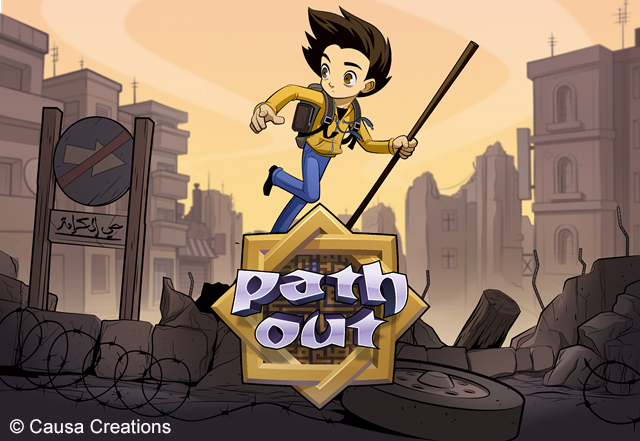“More communication, please!”
Abdullah Karam im Gespräch mit Anita Moser über seine künstlerische Arbeit, das Potenzial von Computerspielen und Salzburg als Ort kultureller Teilhabe und Produktion
And would you say that this is “typical” for Austria or for Salzburg, or do you mean in general?
In general, because this is how people are. There is nothing like “Austrians” or “Germans” or “Syrians” – we are all human beings. Those are just names that have been given to us – and borders. Of course there are cultural differences, but if you communicate with each other and understand each other, then there is no racism anymore. Unfortunately, at the moment there is a lot of racism in the society. Although almost everyone has access to the internet, there is still a big lack of knowledge, which in my opinion is a major cause of racism.
Where do you notice and observe racism?
Many things are not allowed to me because I was born in another country. It’s like it had been my choice to be born in another country. I have passion and ideas and solutions, but often I hear that I’m not allowed to contribute them because I’m not an Austrian. “You should wait until you are Austrian and then you will be a good human being.” That’s racism, but nobody is noticing it. Like it doesn’t exist. It was the same thing with the black people in America. Nobody was noticing it because it was normal. But when you keep talking about it, people will notice racism because it is simply unfair. You see, Austria is now my country. It’s not like I have another home country to go to.
Are there artistic and cultural projects in Salzburg that you have seen or taken part in and you found interesting, because they are open for everybody or special in a certain way?
I got, for example, invited to play at the Mozarteum theatre here in the KunstQuartier, where I had the possibility to play together with other actors. I went totally with the idea of the play and started communicating, started imagining stuff – it was amazing. There are a lot of activities in this city, but I think the problem is that people are not united here. When it’s about art, we should really be united and accept all the others and share our art with the people. Unfortunately, people are getting a little bit weird and shy through the social media. Without social media, we would maybe have better communication between one another. Media like Facebook and such are great, because everything is shared and everything is easily accessible. But the Internet and texts are not enough to communicate with people. You need voice expressions, you need body language, you need eye contact. I think we should be more united and have more communication in our society. More communication, please!
Regarding to your own artistic production, what difficulties are you facing or were you facing when you arrived?
My own fears and assumed risks. But if I would have always thought about that, I never would have changed. I have a good example: I was watching a play in Salzburg, and after the play I really wished I could speak to the actress. But I was shy and had all those fears. What if she finds it weird? What if she doesn’t want to talk to me? What if …? Finally, I went there and said: “Hello, my name is Abdullah, I am a refugee. I like to act, I like to perform and I want to be involved.” She said: “What else do you know?” And she was asking so she would know in which direction she wanted to lead me. I said: “I love video games and I do a lot of graphics.” And the guy who was sitting beside her – her boyfriend at that moment and her husband now – was Georg Hobmeier, the founder of Causa Creations and with whom I did Path Out. He gave me his card and said: “Let’s stay in touch.” And I sent him an email.
If you go above your own fear, then you will get to the places you were always dreaming of. And if you really want to achieve your dream or to share your art then you have to take risks.
Anita Moser, Abdullah Karam ( 2018): “More communication, please!”. Abdullah Karam im Gespräch mit Anita Moser über seine künstlerische Arbeit, das Potenzial von Computerspielen und Salzburg als Ort kultureller Teilhabe und Produktion . In: p/art/icipate – Kultur aktiv gestalten # 09 , https://www.p-art-icipate.net/more-communication-please/


 Artikel drucken
Artikel drucken Literaturverzeichnis
Literaturverzeichnis